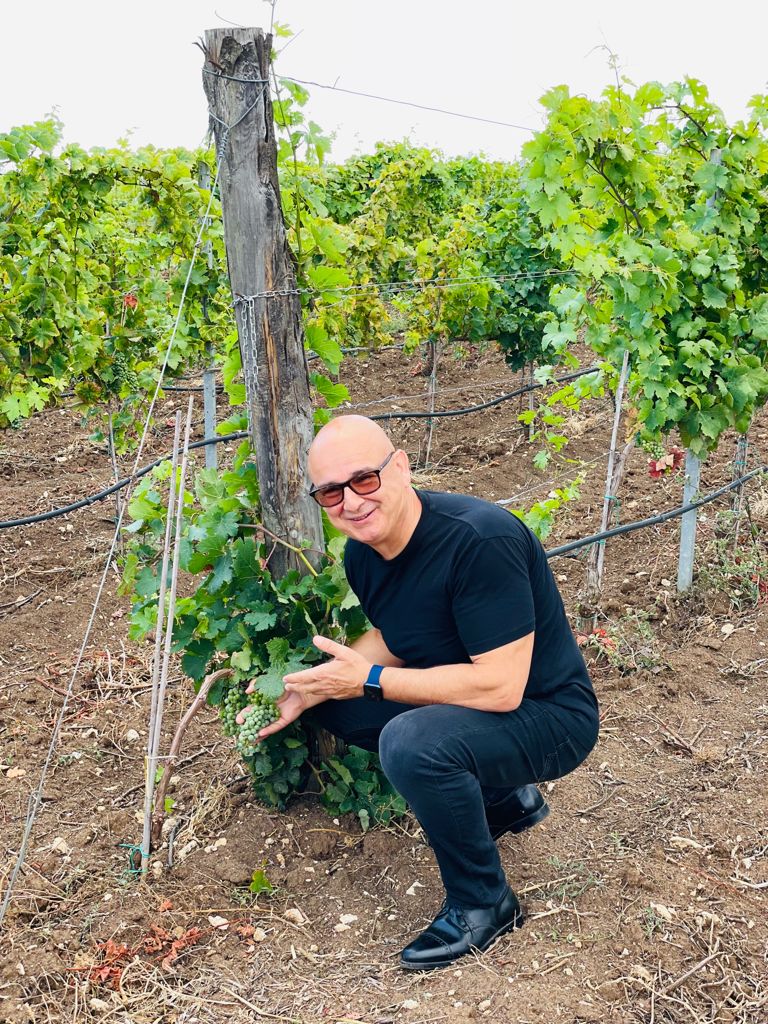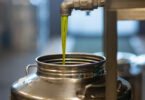The Wolf Post, supported by a Cultural Association, offers a professional service with free access, without subscription.
For this reason, a donation would also be a sign of appreciation for our work.
Nicola Angiuli is one of the historical importers of Italian wine in the USA. Founder, with Alessandro Francoli, in 1999, of Francoli USA (part of an international group of companies under Francoli S.P.A, operating for fifty years on the quality Italian wine and spirits market) Angiuli is a visionary.
A good importer manages to place the goods in the various international markets. A visionary importer has the rare gift of predicting the future, in the light of historical, social, political emergencies, going beyond the present.
From the pandemic to one of the most worrying conflicts in the heart of Europe, the challenges of trade are currently manifold. Those who are able to plan for the near future, precisely by virtue of the historical context, will be able to remain on the international market, overcoming the inevitable changes already underway.
A rule that also applies to the wine sector as Nicola Angiuli tells us in this interview, in which he offers various food for thought.

©Nicola Angiuli
In the first two interviews we were grappling with the pandemic and the related commercial difficulties associated with it. Today, on the pandemic and economic activity recovery front, what changes have you faced, positively and or negatively?
We encountered more good than bad things. Although there is a small increase in the number of Covid cases, we are finally returning to a normal life. The new variants appear to be less severe. Now, people are more eager to get to know other products, there is a more festive air around, of liberation.
On the negative side, we have some difficulty with the supply chain. In fact, many Italian companies are experiencing problems in finding bottles, capsules, caps. All of this is affecting the price of the final product. Fortunately, this price increase is shared by the whole world, so also Spain, France, Germany, but also Made in USA products. Another negative is the transport. I remember that the cost of a transport from Italy to New Jersey was about € 4,000 while, nowadays, we are around € 12,000. Another negative side concerns the times: the containers are not as they used to be, because now everyone is shipping their products, not only wines and spirits, but also clothing, furniture, accessories, and so on, and so transport is very slow.

© Nicola Angiuli- FRANCOLI USA
If the implications of the pandemic emergency are still visible, those of the conflict in Ukraine are likely to last over time. According to the data of “Wine Monitor Nomisma”, due to the conflict in Ukraine, the export of Italian wine has suffered considerable damage, being Italy the first wine exporter to both Russia and Ukraine. How much is this conflict affecting (if it is affecting) also in the export of Italian wine to the United States?
I believe that wars must always be avoided. Europe has already suffered a lot from the war and, thanks to NATO and the European Union, has avoided other conflicts.
Made in Italy is particularly appreciated in Ukraine, Russia and Eastern Europe, countries that love Italy and not only appreciate wine, but also cars, fashion, furniture, etc. Much of the yachts seized from the Russian oligarchs in Europe had been produced in Italy. This affects the export of Italian wine to the United States as Ukraine is one of the supplier countries of capsules and labels and this affects the slowing of the supply chain, causing price increases and slowdowns in the preparation of orders.
One piece of advice I would like to give to producers is to start ook for alternative solutions, perhaps local ones, because this war, unfortunately, risks going on for a long time, as the Ukrainians have shown that they know how to defend themselves and, on the other hand, I am afraid Putin will not give up soon.

©Nicola Angiuli
Since the beginning of the conflict and with the sanctions in place, have you had an increase in requests from Italian companies eager to enter the US market?
We always receive numerous requests from companies. I have been doing this job for 40 years and I have also managed several companies, I can say, for this reason, that there is always a large demand from Italian companies. I have noticed, however, that, lately, these requests have increased because, of course, Italian producers, having problems not only in Ukraine and Russia, but, perhaps, also in other European countries, are looking overseas and the United States are a country a little more geographically distant from the war.
I want to suggest to all Italian producers that when they start thinking about trade, they shouldn’t do it only in the event of a conflict or a crisis situation. They always have to think about it. In business one must always think, “What’s Next?”. You must always have one foot ahead of the other. And whoever has the foot ahead of the competitor wins.

© Nicola Angiuli- FRANCOLI USA
If Russia was an important market for many companies, especially for those that still cannot be present overseas, the United States remains the Eldorado par excellence, the most coveted nation for wine companies. Yet, in one of our previous interviews, you stressed that Italian wine, in recent issues, must face competition not only from countries with an ancient European wine tradition, but also from the United States. What kind of evolution do you foresee, according to your experience, in the medium and long term, also by virtue of the instability of the international markets?
Historically, after a crisis, be it a war, a pandemic or an economic crisis, the world tends to restart stronger than before. This happened with Italy and Europe after the Second World War, with the economic boom of the 50-60-70 years; it happened to the United States after 9/11 and it will happen when this conflict is over. For now, yes, prices have risen but “fortunately” for the American market the Euro is suffering and weakening. This helps to absorb the increases from importers and not to push prices up too much in the American market.
As for the future, my advice to producers, but not limited to anyone who produces Made in Italy for export, is to prepare. Get ready because once this conflict is over, Made in Italy will restart stronger than before and not only in the United States, but also in Ukraine and Russia.

© Nicola Angiuli- FRANCOLI USA
In this complex and unstable historical period, what suggestions would you give to wineries?
Start planting new vines and, if there is an opportunity to buy new land, do so. Because I am convinced that when this conflict, and the problems with the production chain will end, the prices of grapes will go up. Then, those who have the land will be able to work even better. So get ready, because we are losing the battle, at the moment, but we will win the war.








